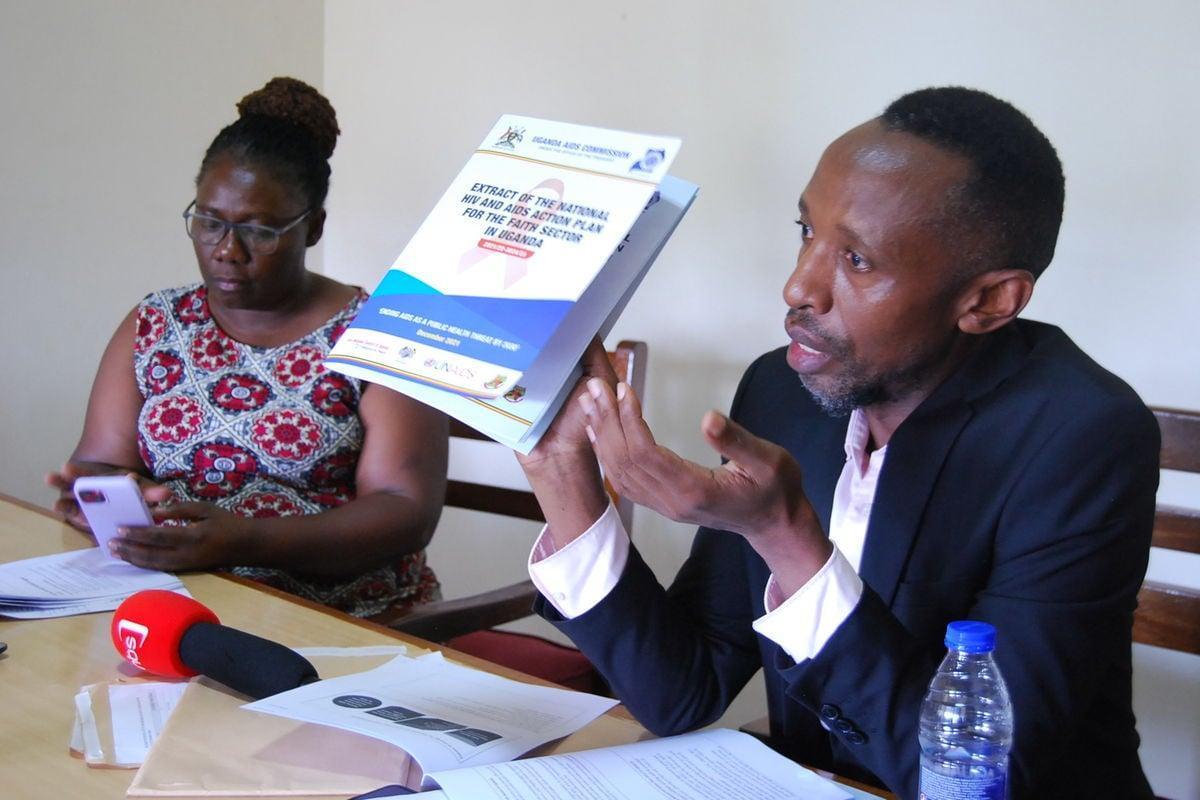Africa-Press – Uganda. The government through the Uganda AIDS Commission (UAC) has rolled out a national HIV/AIDS action plan for the faith sector in the country.
The action plan (2021/22 – 2024/2025) aims at creating and sustaining the contribution of the faith sector to accelerate efforts to reduce the national HIV/AIDS as a public health threat by 2030.
It also aims at amplifying the advocacy voice of faith and religious leaders on structural barriers to AIDS response and strengthening the capacity of faith-based organisations and faith communities to implement the national HIV action plan.
Dr Stephen Asiimwe, the UAC Prevention Officer, says they rolled out the action plan starting with high-burden districts because it involved a long process, which includes developing a framework.
“We are rolling out place-by-place; we have been to other places earlier and shall visit areas that we haven’t been to,” he said in an interview in Jinja City on March 27.
He added: “The national figures show that we have overcome the HIV/AIDS burden, but on the ground, we haven’t. So, we have decided to roll out an action plan for the faith sector because they have an important role to play.”
According to Dr Asiimwe, it is no longer doctors’ responsibility to deal with people who have HIV/AIDS, the reason they have turned to religious leaders, whose role, he said, is to influence people’s behaviour, which doctors can’t.
The manager of reproductive health and HIV/Aids at the Inter-Religious Council of Uganda (IRCU), Dr Rebecca Kivumbi Mayanja, says religious leaders are the first people in contact with the communities.
“Every week, religious leaders come into contact or speak to over two million people, that is, on Friday the Muslims, on Saturday, the Seventh Day Adventists (SDAs), and on Sundays, we have the Protestants, Catholics and Born Again.
“What we want is for them to be able to pass on health messages, especially HIV/AIDS because its prevalence has remained high. In Jinja city, the prevalence is at 8.4 per cent, which is higher than the national figure of 5.1 per cent,” Dr Mayanja said.
Dr Mayanja further explained that the public believes in religious leaders, while some have platforms in the form of radios and televisions where they can pass on messages. “But also, they will be happy to have healthy congregations,” she said.
According to Dr Mayanja, the majority of Ugandans are religious people or people of faith, while most religions fall under IRCU. “So, it is up to us to utilise that strength and talk to the people.”
Fr Chrysostom Koolya, the vicar General Orthodox Diocese of Jinja and Eastern Uganda, says on their part, they have tried to disseminate threats of Hiv to people by using sermons, messages of hope, youth camps, mass media, handouts and burial platforms.
He, however, says, they face several challenges, including a shortage of funds, lack of capacity building because it is a medical issue, and defiance from different people, especially the youth, who don’t follow faith and are taken up by social media and Western culture.
Ms Susan Naguyo, the Jinja District HIV focal person, says during the last quarter of 2023, they recorded 171 new infections in selected areas.
These include 45 new infections in Buwenge Town Council, 34 cases in Buwenge Rural sub-county, 33 cases in Buyengo Town Council, and 14 new cases in either Kakira Town Council or Busedde sub-county.
On the above findings, she said there is a need to worry because the target is to stop new infections by 2030.
According to the UAC, in 2022, over 52,000 people got newly infected with HIV, which translates to about 1,000 people per week, with new infections almost four times higher among female adolescents than their male counterparts.
It is further estimated that Uganda has about 1.4 million people living with HIV, with 1.2 million on treatment; the prevalence is between the ages of 15 and 49 years (5.1 per cent), but 6.5 per cent for women and 3.5 per cent for men, according to the UNAIDS fact sheet.
For More News And Analysis About Uganda Follow Africa-Press






